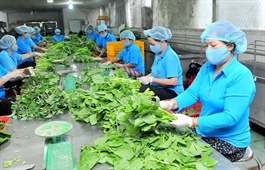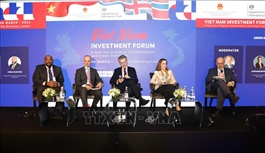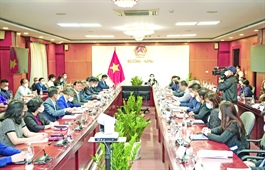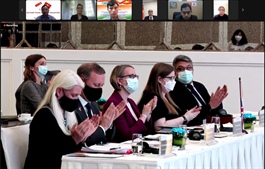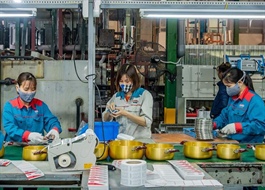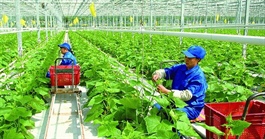Mekong plan outlines path to security
Mekong plan outlines path to security
The Mekong Delta is stagnating on the back of poor frameworks and infrastructural gaps – flaws that are hoped to be remedied with a new 2021-2030 masterplan, driving regional socioeconomic growth.

As the region has been focusing on ensuring food security for the whole country, the Mekong Delta has slowly shifted to more productive industries. In 2021, the growth rate of agricultural regional GDP reached 1.6 per cent, while the added value within this accounted for 32.2 per cent of the region’s GDP and 31.37 per cent of nationwide agricultural GDP, as shown in recent data from the Ministry of Agriculture and Rural Development.
The strength of the agricultural economy continues to be the target of the government as described in a masterplan for the 2021-2030 period, in which it aims to increase the agricultural added value at a high rate of about 20-25 per cent by 2030 while taking advantage of free trade agreements to expand the market.
Dong Tam Group and several other businesses are planning to invest in a transhipment network with a fleet of container ships for goods in the Mekong Delta region to ports in Ho Chi Minh City and the southern province of Long An.
Vo Quoc Thang, chairman of Dong Tam Group, at a conference on port development and logistics in the Mekong Delta on March 18, said that roads are overloaded, and investment in waterway exploitation would reduce logistics costs to the lowest possible level. “However, enterprises cannot invest in such projects alone,” Thang said.
Data from the Vietnam Logistics Research and Development Institute also showed that the whole region has three main inland waterway routes, but barges with a capacity of 215TEU can only move on the Long An-Cambodia route as the route between Long An and Ho Chi Minh City only allows for ships of less than 120TEU. Meanwhile, the Can Tho-Cambodia route is entangled with alluvial flats in the Hau River area, only suitable for ships with a load of 50-80TEU.
Pham Minh Hai, deputy director of the Transport Development and Investment Advisory Centre under the Ministry of Transport, said, “Congestion on the National Highway No.1 and an overloaded Cho Gao canal both also present bottlenecks.”
The whole region has 44,000km of roads, but up to 36,000km are rural. Hai added that although about 80km of expressways were built, only 36km were officially exploited.
Inland waterway transport plays a key role in the region but is severely underinvested. Data from the World Bank showed that the investment budget for inland waterways in the Mekong Delta decreased from 2-3 per cent in the 2011-2015 period to an average of 1.2 per cent in the last five years.
The Mekong Delta exports about 18 million tonnes of goods per year, but 70 per cent has to rely on large ports in Ho Chi Minh City and Ba Ria-Vung Tau province, causing transport costs for enterprises to be 10-40 per cent higher than necessary, depending on the route, according to the World Bank.
Despite the masterplan showing a direction of a market economy, international integration, and the state focusing on creating an environment for development, policies for the region need to be renewed for sustainable development, according to analysts from the Vietnam Academy of Social Sciences.
The Ministry of Planning and Investment confirmed the Mekong Delta may receive about $16.8 billion of state budget investment in the 2021-2025 period, but most of this would likely not foster short-term growth.
Tran Ngoc Chinh, chairman of the Vietnam Urban Development Planning Association said, “The management and implementation of regional planning will be a huge challenge due to related laws and administrative works. In this context, the Mekong Delta will transform its growth model, focusing on sustainability, international economic integration, and response to climate change.” Chinh suggested forming a regional management agency with sufficient authority and resources to coordinate development policy.
“Vietnam did not establish a management agency with sufficient competencies and resources to coordinate regional development policies. The Mekong Delta desperately needs a conductor to coordinate the implementation of the region’s development strategies,” he added.








